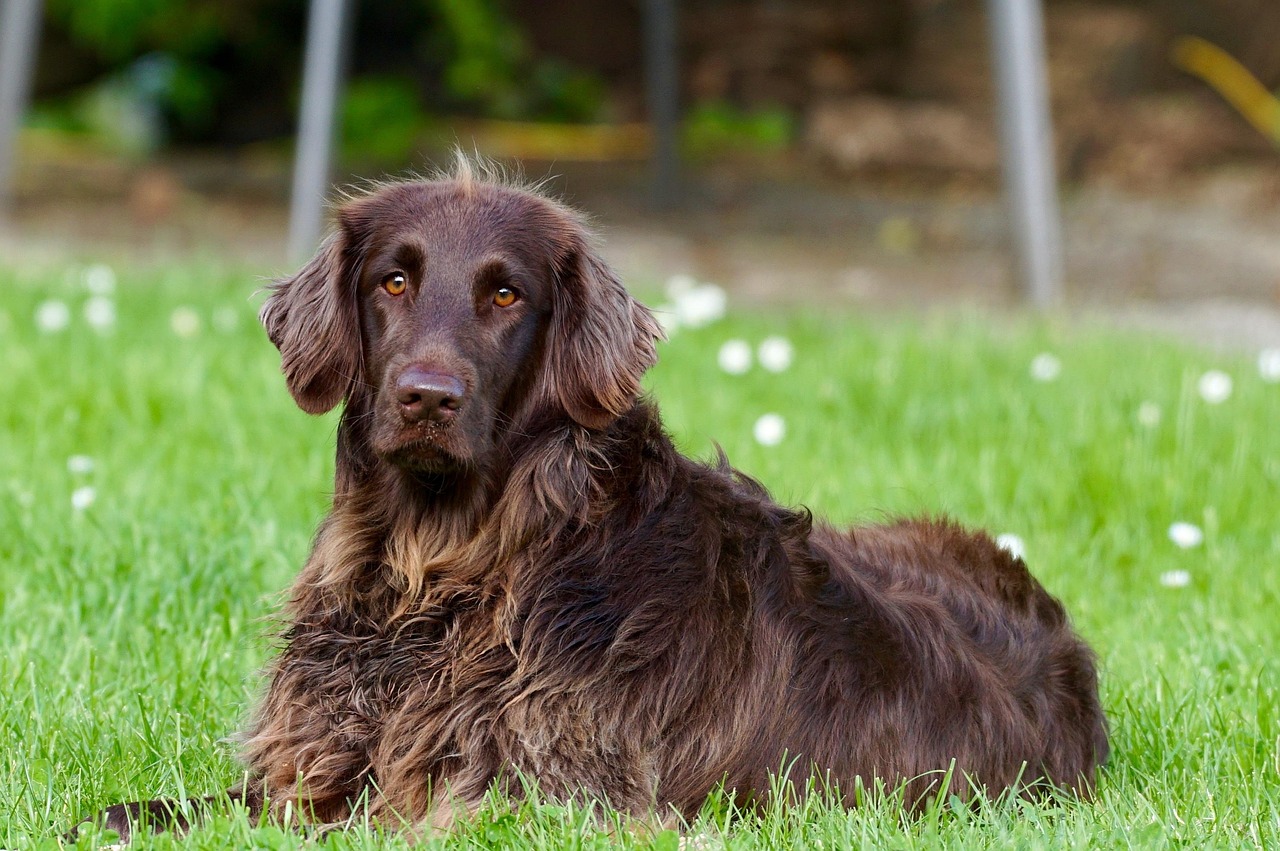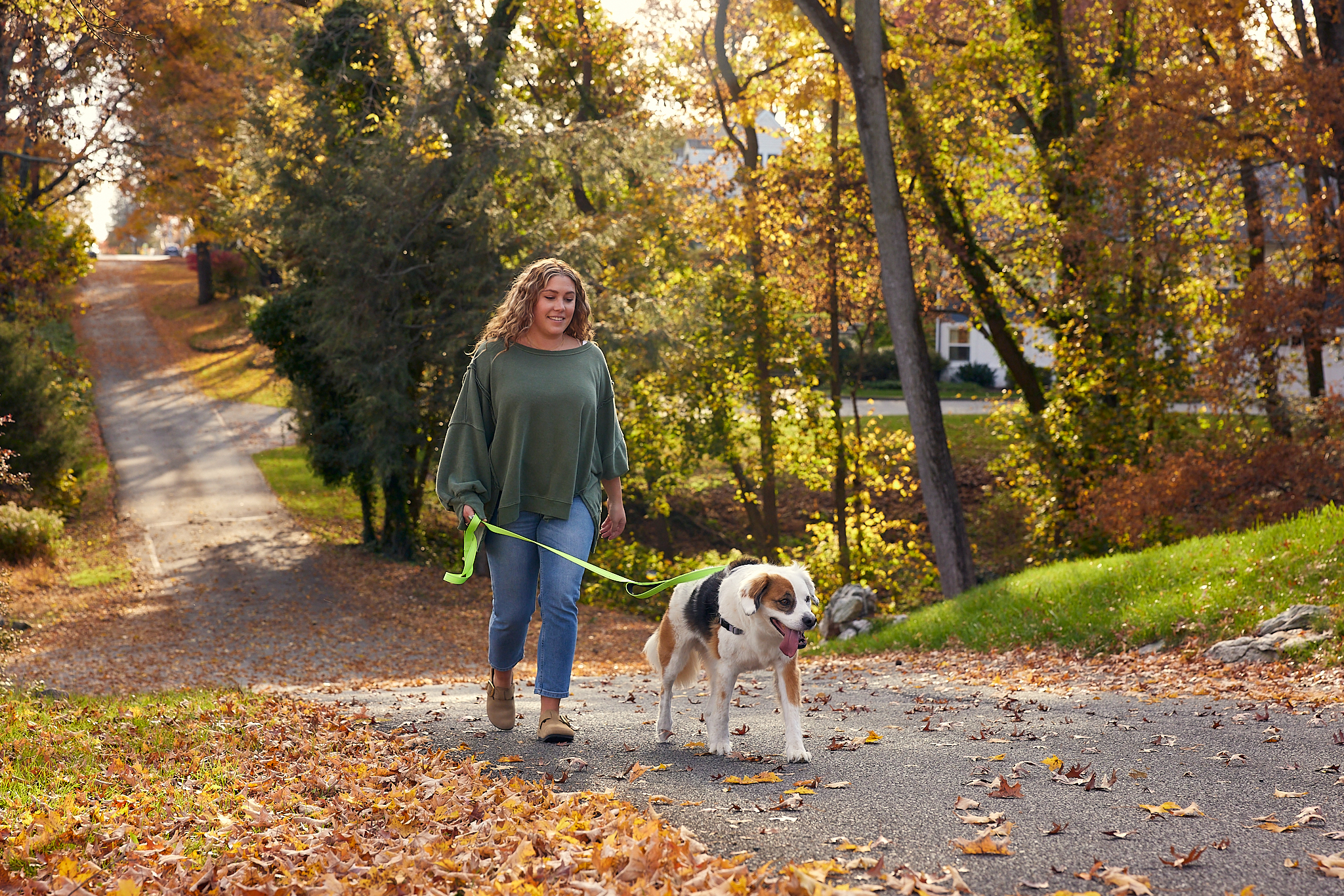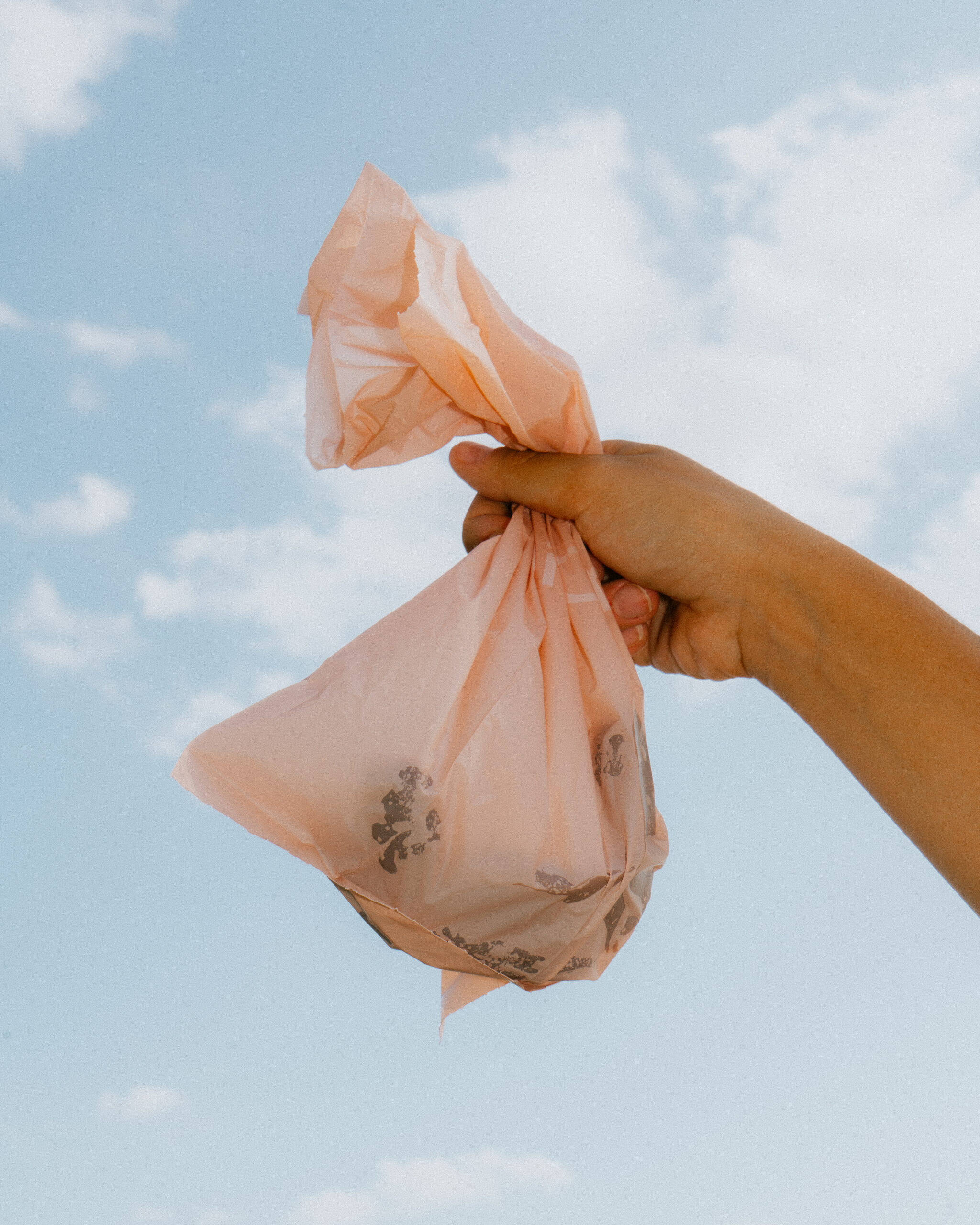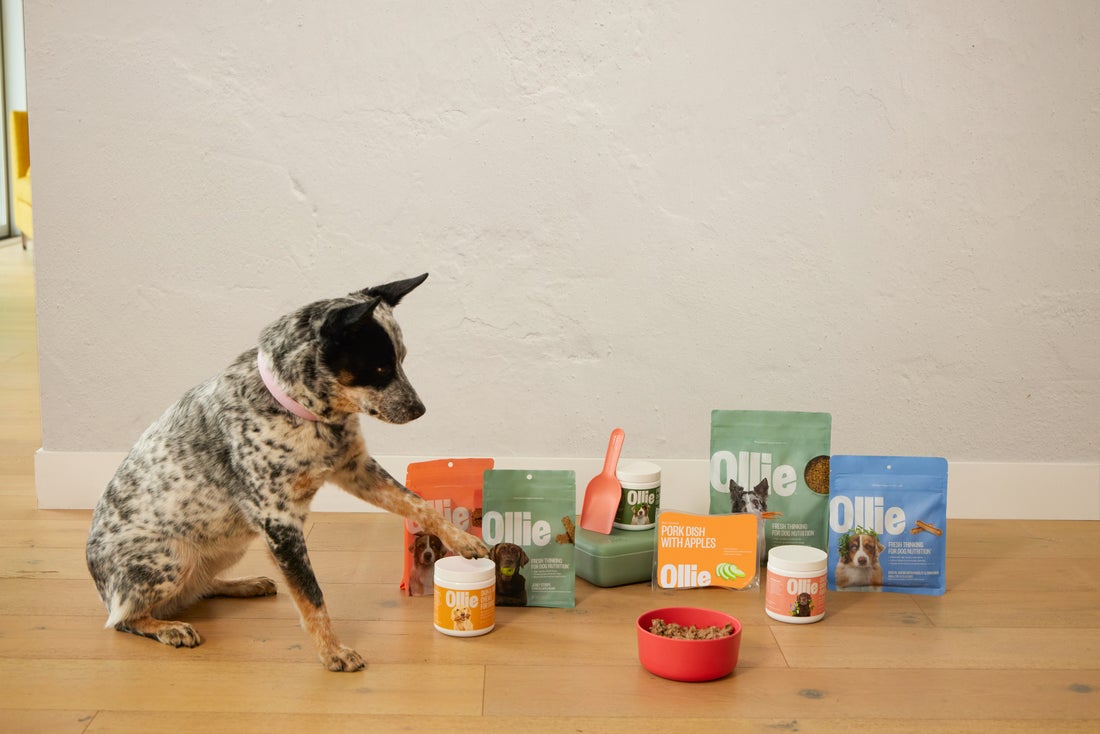Hey Ollie blog readers! We’re offering you an exclusive 60% OFF your starter box! Try now!
It’s not something anyone looks forward to, but checking your dog’s poop is one of the quickest ways to spot if something’s off. So when you notice your dog’s poop is black, it’s natural to pause and wonder if it’s a cause for concern.
Sometimes, dark or even black stool can be harmless. Maybe your dog got into something unusual or ate food that’s rich in pigment, like liver or blackberries. But other times, black dog poop can point to something more serious, like bleeding in the upper part of the digestive tract.
Veterinarians call this kind of dark, tar-like stool melena. It’s different from the dark brown we expect and often has a sticky, shiny texture. This usually means the blood has been digested before exiting the body, so it’s not just about what your dog ate, but how their body is reacting internally.
In this guide, we’ll explain why black poop happens, when to worry, and what steps to take. We’ll also talk about the role diet plays in healthy digestion, and how feeding your pup a balanced, fresh option like Ollie can support regular, easy-to-spot stools (and fewer surprises in the yard).
What Is Normal Dog Poop Color and Texture?
Before we get into what black poop means, let’s talk about what a dog’s poop should look like when everything’s working the way it should.
Healthy stool is:
- Medium to dark brown
- Formed but not too hard
- Moist, not sticky
- Free from mucus, blood, or unusual debris
The brown color comes mostly from bile and the normal breakdown of red blood cells. It can vary a little based on what your dog eats, but it should stay within a predictable range, soft enough to pass comfortably, firm enough to scoop easily.
What it shouldn’t be is jet black, shiny, or tar-like. That kind of stool could mean that blood is being digested before it exits your dog’s body, which is a signal that something deeper in the digestive system might be going wrong.
One of the easiest ways to support poop that’s predictably normal? Stick with real, digestible food. Ollie fresh dog food is made with gently cooked meats and whole ingredients that are easy on the stomach, and just as easy to clean up afterward.
Common Causes of Black or Tarry Dog Poop (Melena)
Not all dark stool is a reason to panic, but true black, tarry dog poop (melena) is usually a sign that blood is being digested, often from the upper part of the gastrointestinal tract. That’s why it tends to look shiny, sticky, and much darker than normal poop.
Here are the most common causes of melena:
- Diet High in Blood or Dark Pigments
Feeding your dog a raw diet or treats like liver, blood meal, or dark-colored meat can result in dark or black poop. While this is usually harmless, it’s good to track if the color returns to normal after switching back to a balanced, digestible meal like Ollie fresh food.
- Upper Gastrointestinal Bleeding
This is one of the most serious causes of black dog stool. Bleeding from the stomach, small intestine, or esophagus can be caused by:
- Stomach ulcers
- NSAID (non-steroidal anti-inflammatory) medications
- Ingested foreign objects
- Severe inflammation or trauma
- Tumors or lesions in the GI tract
Because the blood is digested before it reaches the colon, the resulting poop turns black and tar-like.
- Certain Medications and Supplements
Some medications like bismuth-containing stomach treatments (e.g. Pepto-Bismol) may temporarily darken stool—but these should only be given under veterinary guidance. If your dog has recently started a new medication, be sure to check with your vet about possible side effects. If your dog has recently started a new medication, check with your vet about possible side effects.
- Parasites or GI Infections
In rare cases, parasites or bacterial infections can cause internal bleeding, leading to blackened stool, especially if accompanied by vomiting, fever, or appetite changes.
- Gastrointestinal Tumors or Chronic Disease
If your dog is older or has a history of tummy troubles, black or very dark poop could be a sign of long-term digestive issues or internal growths that lead to slow bleeding in the gut.
While tumors are a possibility, most cases of black stool are treatable when caught early—especially if the cause is something like inflammation or a manageable condition.
Spotting these signs early helps you and your vet figure out if your dog needs medical attention or just a change in diet. When in doubt, it’s always smart to play it safe and check in with your vet.
Is It Diarrhea, Tarry Stool, or Just Dark?
When you see black poop, your first instinct might be to panic—but not all dark stools are created equal. Understanding the difference between normal variation, tarry stool, and black diarrhea can help you figure out what’s next.
Black But Formed Poop
If your dog’s poop is dark brown or nearly black but well-formed, and they seem perfectly normal otherwise, it could be tied to something they ate. Dark-colored foods, raw diets, or iron-rich treats can create this effect.
Still, keep an eye on it. If the color sticks around longer than a day or two, or if your dog acts differently, it’s worth checking with your vet.
Black Diarrhea in Dogs
Loose, runny, or liquid black diarrhea is more alarming. It often points to bleeding higher up in the digestive tract. If your dog is also vomiting, lethargic, or refusing food, this is likely an emergency. It’s best to contact your vet right away—they’ll know exactly how to help your pup feel better fast.
Tarry or Sticky Stool
This is classic melena. It usually has:
- A shiny, jelly-like appearance
- A strong, almost metallic odor
- A consistency that smears or sticks to surfaces
This isn’t something to wait on. If your dog’s poop looks tarry, get them evaluated as soon as possible.
Sometimes what looks like black poop turns out to be dark brown or even greenish when viewed in natural light. But if you’re ever in doubt, especially with symptoms, err on the side of caution.
Signs That Black Poop Is Serious
Spotting black dog poop once might not mean anything urgent. But if it’s happening more than once, or your dog is acting off, it’s time to pay close attention. Certain signs point to more than just a dietary issue.
Here’s when black or dark poop is a red flag:
It Looks Tarry or Sticky
Melena (digested blood in stool) tends to look shiny, thick, and sticky, almost like black licorice or roofing tar. That’s usually not from food. It often signals internal bleeding.
It’s Happening More Than Once
If your dog’s stool is black for two or more consecutive bowel movements, it’s time to check in with your vet. This isn’t just a passing thing, it may be part of an underlying issue.
Your Dog Has Other Symptoms
Watch for:
- Vomiting (especially if there’s blood)
- Lethargy or sudden tiredness
- Pale gums
- Loss of appetite
- Rapid breathing or heart rate
- Abdominal bloating or signs of discomfort
These can point to GI bleeding, ulcers, or other serious conditions that need medical treatment.
Your Puppy Has Black Stool
With black puppy poop, you don’t want to wait it out. Young dogs are more vulnerable to infections, parasites, or accidental ingestion of something harmful.
If you see any of these signs, don’t wait for things to get worse. Your vet can run a few simple tests to figure out what’s going on, and help your pup feel better faster.
How Vets Diagnose Black Dog Poop
If your dog’s stool is black, tarry, or concerning, your vet will take a close look at both symptoms and recent history to figure out the cause. Here’s what to expect:
Review of Diet and Behavior
Your vet will start by asking:
- What your dog’s eaten recently (raw food, bones, supplements?)
- Any new medications or over-the-counter treatments
- Signs of vomiting, behavior changes, or other symptoms
- Timing and frequency of the black poop
Bringing a fresh stool sample can be a huge help here.
Blood Tests
A complete blood count (CBC) and chemistry panel can check for:
- Signs of blood loss (anemia)
- Liver and kidney health
- Clotting issues or infection
Fecal Exam
Your vet may run a fecal smear or float test to rule out:
- Parasites (like hookworms or whipworms)
- Bacterial overgrowth
- Undigested blood
Imaging or Endoscopy
If GI bleeding is suspected, they might recommend:
- X-rays: to check for foreign objects or blockages
- Ultrasound: to view the stomach, liver, or intestinal lining
- Endoscopy: a tiny camera can inspect the esophagus or stomach for ulcers or masses
Getting to the bottom of why your dog’s poop is black can usually be done quickly. And the sooner you catch the issue, the easier it is to treat, especially when it comes to bleeding or internal irritation.
Treatment & Management Strategies
The right treatment for black dog poop depends entirely on what’s causing it. Some fixes are simple, others need a bit more medical help. The good news? Many dogs bounce back quickly once the root issue is found.
Here are common treatment paths your vet might recommend:
Adjusting Your Dog’s Diet
If black stool is tied to pigment-rich foods or a raw diet, your vet may recommend switching to a gentler, more balanced meal plan. Highly digestible, nutrient-rich meals, like Ollie fresh food, can help restore normal stool color and reduce stress on the gut.
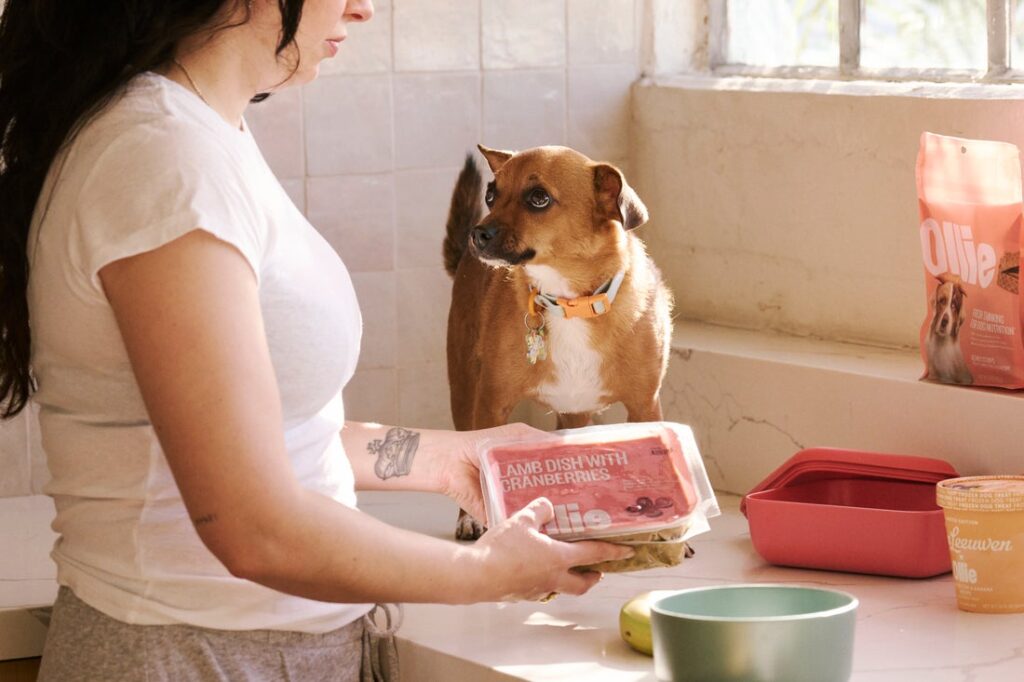
Medications for GI Issues
For dogs with ulcers or internal irritation, vets often prescribe:
- Antacids (like famotidine or omeprazole)
- Gastroprotectants (like sucralfate)
- Antibiotics if an infection is found
- Anti-nausea meds if vomiting is also present
These help soothe the lining of the stomach and intestines, giving your dog’s digestive system a break.
Parasite or Infection Treatment
If parasites or bacteria are to blame, your vet may prescribe:
- Dewormers
- Antibiotics
- Probiotics to rebalance gut flora
Surgery or Advanced Care
In more serious cases (like bleeding tumors or a foreign object), surgery might be needed. Your vet will talk through risks, costs, and recovery time if this route is recommended.
The best way to support your dog’s health? Recognizing changes early and giving their digestive system what it needs to thrive. Whether it’s switching up food or starting meds, fast action can prevent a small problem from turning into something more serious.
What You Can Do at Home
While your vet handles diagnosis and treatment, there’s plenty you can do at home to support your dog’s digestive health and help prevent black or dark poop from becoming a repeat issue.
Keep a Poop Log
Yes, it might sound odd, but tracking your dog’s poop (color, consistency, frequency) can give your vet useful clues. If your dog’s poop is black, jot down what they ate, when it happened, and any other symptoms.
Monitor What They Eat
Avoid giving:
- Table scraps
- Rich or fatty foods
- Bones or raw meat without vet supervision
Stick to a diet that’s easy to digest and nutrient-balanced. Ollie gently cooked meals are made with real meat, fiber-rich veggies, and no by-products, making it easier on sensitive stomachs.
Be Cautious With Medications
Never give over-the-counter meds like ibuprofen or aspirin unless directed by a vet. These can cause ulcers that lead to black tar dog poop.
Keep Them Hydrated
Digestive issues can get worse if your dog is even mildly dehydrated. Make sure they have constant access to fresh, clean water, especially if vomiting or diarrhea is present.
Watch for Changes in Behavior
Even small shifts, like less energy, changes in appetite, or sleeping more, can mean something’s brewing under the surface. Pair those with black stool, and it’s time for a vet visit.
Proactive care at home goes a long way. With the right diet and attention to detail, many poop problems can be managed, or prevented entirely.
FAQs About Black Dog Poop
What does black poop mean in dogs?
Most often, it means there’s digested blood in the stool, a condition called melena. This can result from bleeding in the stomach or upper intestines, usually due to ulcers, medications, or other health issues. It’s not always an emergency, but it should always be evaluated.
Can food cause black poop in dogs?
Yes, certain foods like liver, blood meal, or even some raw diets can temporarily darken stool. If your dog is acting normally and the poop returns to a healthy brown after a day or two, it’s likely just dietary. If not, consult your vet.
What if my dog’s poop is black and my dog keeps vomiting?
That’s a sign you shouldn’t wait on. Black stool and vomiting can point to internal bleeding or severe gastrointestinal problems. Call your vet immediately.
Is black poop in puppies more serious?
Yes, black puppy poop should always be taken seriously. Puppies are more prone to parasites and infections, and they can dehydrate or decline fast. Don’t wait for a second episode, get a vet’s opinion right away.
How do I know if it’s melena or just dark stool?
Melena usually looks shiny, sticky, and tar-like. If you’re unsure, put the poop on a white surface or napkin and check the color. If it smears black or has a distinct odor, call your vet.
Can Ollie help with digestive issues that lead to black stool?
Yes. Ollie fresh, vet-formulated meals are made with real meat, fiber, and nutrients to support a healthy digestive system. That means less irritation, easier digestion, and more predictable, normal-looking poop,no mystery colors.
Tagged As:

The nutrition your dog needs,
the food they want.

Enjoying our articles? Subscribe our Newsletters and get new articles directly to your inbox
You might also like
31 July 2025
4 MINS READ
The Healthiest US States for Dogs
The Ollie Health team, a team of veterinarians and veterinary technicians, reviews thousands of photos submitted through Ollie’s Health Screening service. That’s hundreds of dogs (and their st…
by Ollie Pets
30 July 2025
3 MINS READ
The Poop Scoop: Your Dog Digestion Questions Answered
As pup parents, we spend a lot of time handling dog poop, and as a key indicator of a dog’s health, it’s only fitting that we think and talk about it just as much. Unfortunately, what happens …
18 July 2025
6 MINS READ
Can You Mix Fresh Dog Food With Kibble?
If you’re feeding your dog kibble but want to upgrade their bowl, you’re not alone. Many pet parents ask if they can mix fresh dog food with kibble to get some of the benefits of fresh food wi…
by Ollie Pets
